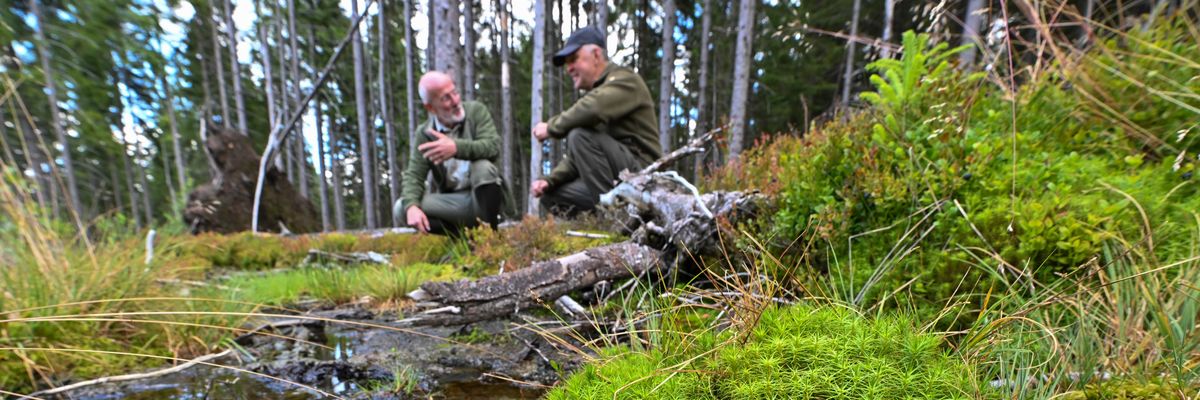Biodiversity advocacy groups in Europe on Friday applauded policymakers' reaching of a landmark deal to restore nature, finalized after painstaking negotiations between the European Parliament, Commission, and Council—but warned that the bloc's largest party, the right-wing European People's Party, had succeeded in securing numerous concessions that watered down the agreement.
The Nature Restoration Law, part of the European Union's Green Deal to protect the environment and reduce planetary heating, will establish measures to restore at least 20% of the bloc's land and 20% of its marine environments by 2030.
Currently, about 80% of natural habitats in Europe are in need of restoration. At least 30% of degraded habitats must be restored by the end of the decade under the law, rising to 60% by 2040 and 90% by 2050.
The agreement still needs to be passed by the European Parliament's Environment, Public Health, and Food Safety (ENVI) Committee in a vote that's scheduled for November 29, and then proceed to a "rubber-stamp vote" in parliament's plenary session in December.
"The true litmus test lies in whether this law will really address the staggering repercussions of the climate and nature crisis. And that will only be seen if and when member states properly implement the law."
Lead negotiator César Luena, a Spanish member representing the center-left Socialists & Democrats Party, said he was confident the measure would pass but admitted the agreement reached late Thursday night was only "the first brick" to ensuring biodiversity is restored in Europe.
"I wanted more, of course, but this is a deal," Luena toldPolitico.
Advocates including the environmental law group ClientEarth celebrated key victories, including strict requirements to restore and increase nature on farmlands and peatlands.
"But the reintroduction of the article came at a high cost, with significant concessions being made," said ClientEarth.
The deal requires E.U. countries to prioritize the restoration of sites that are protected by the bloc's Natura 2000 program, which includes Europe's most threatened species and habitats.
But after lobbying by the European People's Party (EPP), countries will be under no legal obligation to implement the protection measures in other areas until 2030.
The peatland protection clause is also "voluntary" for farmers and private landowners, and the EPP removed a requirement for 10% of farmland to have landscape features including hedgerows and flower strips.
Advocates also lamented an "emergency brake" provision included in the deal, which allows E.U. countries to pause implementation for agricultural land if there is a food security crisis.
Sofie Ruysschaert, nature restoration policy officer for BirdLife Europe, said the remaining restoration targets for farmlands and peatlands mean "the negotiators have not completely failed European citizens."
"But the true litmus test lies in whether this law will really address the staggering repercussions of the climate and nature crisis," said Ruysschaert. "And that will only be seen if and when member states properly implement the law."
Sergiy Moroz, policy manager for water and biodiversity at the European Environmental Bureau, credited negotiators with ensuring targets to reverse pollinator decline and restoring free-flowing rivers were retained in the agreement.
"Despite significant concessions made to the opponents of the impactful Nature Restoration Law, the provisional agreement includes several positive elements," said Moroz. "It is imperative that the law is now formally adopted by the co-legislators before the E.U. elections in 2024, and its implementation starts without delay to also enable E.U. to fulfill its global commitments on climate and biodiversity."
Progressive lawmakers in the Left group in European Parliament said the negotiators' ability to reach an agreement, considering fierce opposition from right-wing policymakers, was "a relief" and that the deal "remains a very important and necessary legal framework for national nature restoration plans."
The Left warned that conservatives and liberals on the ENVI Committee "may try to undermine the law once more" before the agreement is passed.
"The Left will not cease to expose the misinformation and fearmongering of these groups," said the coalition. "We will continue our efforts for a Nature Restoration Law that enhances environmental resilience against droughts, floods, and heat, making our cities more habitable and supporting farmers."

